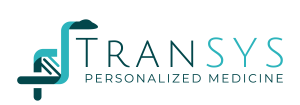19th June 2024 10.05 CEST
Fabio Stella – Università degli Studi di Milano-Bicocca; Machine learning, AI, causality, reproducibility
Transportability and precision medicine: A Causal Networks Perspective
Transportability in statistics and causal inference can indeed bridge bioinformatics with implementation efforts in precision health. By assessing the transportability of causal relationships identified through bioinformatics analyses, researchers can determine the extent to which findings from one context apply to another, informing implementation strategies for precision health interventions. This involves evaluating the generalizability of causal effects across different populations, settings, or time periods, which is crucial for translating bioinformatics discoveries into actionable insights that can be effectively implemented in diverse healthcare settings. Therefore, considering transportability can facilitate the seamless integration of bioinformatics research findings into real-world precision health initiatives, enhancing their effectiveness and relevance across various contexts.
20th June 2024 10.05 CEST
Marieke Kuijjer -University of Oslo Centre for Molecular Medicine, Norway
Unlocking Cellular Complexity: Multiomics Integration for Personalized Regulatory Networks
By harnessing the wealth of information embedded within diverse layers of biological data, researchers aim to unravel the complex regulatory networks governing cellular processes. Through sophisticated analyses of multiomics datasets, it is possible to unravel regulatory mechanisms orchestrating gene expression, protein interactions, and metabolic pathways within individual cells. By leveraging advanced machine learning algorithms and statistical modelling techniques, meaningful patterns and associations from complex biological data can be extracted, shedding light on fundamental aspects of cellular function and dysfunction. Personalized regulatory networks that underlie health and disease states can be delineated by integrating data from diverse sources, including patient samples, disease models, and public repositories.

